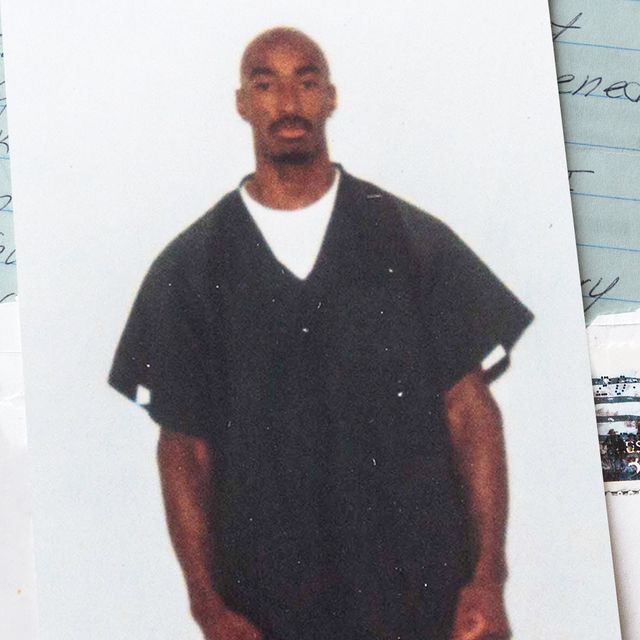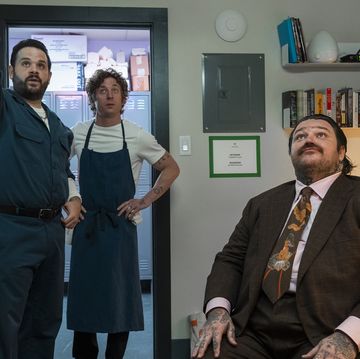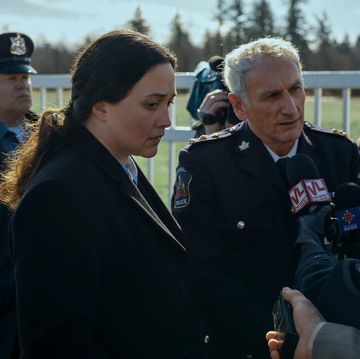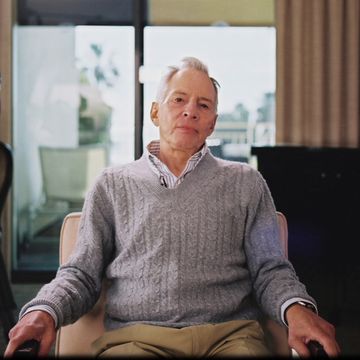In 1995, Sean Ellis was sentenced in life in prison for the murder of a Boston police detective. Two decades later, he was freed when all the charges against him were dropped amid revelations of police corruption in his case. Through Ellis's decades of legal battles and eventual release, Netflix's new true crime docuseries Trial 4 touches on themes of systemic racism, police corruption, and wrongful incarceration in the American justice system.
Around 3 a.m. on September 26, 1993, Boston detective John Mulligan was shot five times in the face while asleep in his patrol car in a Walgreens parking lot. Mulligan was well known in the department and the city at large to be a tough cop, and the documentary notes his non-stop work ethic and incredibly high arrest records. When he was found dead, his gun was missing and the driver’s side door of the car was unlocked. One witness asserted that she saw a white woman in the passenger seat of Mulligan's car just before 3 a.m. that night; another said she saw a Black man crouched next to the vehicle when she entered the store. Police initially had no suspects for the crime.
Three days after Mulligan’s murder, on September 29, 19-year-old Sean Ellis’s cousins Celine Kirk and Tracy Brown were murdered in their Boston apartment. Ellis was questioned by police on September 30, as his ID was found in their apartment along with a package of diapers. He explained that he picked the diapers up at Walgreens on his way over a few days before upon the request of his cousins, and that his friend Terry Patterson had driven him there—which placed him and Patterson at the scene of John Mulligan’s murder. Ellis’s attorney Rosemary Scapicchio asks in the Netflix documentary: “Would you place yourself at a murder scene if you were guilty?”
A car found abandoned near the scene that several witnesses saw in the Walgreens parking lot that night was registered to Terry Patterson’s brother, who told police that Patterson was the primary driver of the car.
On October 6, 1993, police arrested both Terry Patterson and Sean Ellis—immediately after the funeral of his cousins—on charges of first-degree murder, armed robbery, and two counts of illegal possession of a firearm. They were granted separate trials, as an affidavit claimed that Patterson had implicated Ellis as the one who pulled the trigger by nodding when he was asked in an interview if Ellis was the triggerman. The defense attorney, who had been present for Patterson’s statement, maintains that Patterson had not implicated Ellis and did not nod, and that the affidavit had been altered and contained a false statement.
The details and evidence in the case against Ellis never quite lined up. Rosa Sanchez, the key witness in the case who pointed out Ellis in a suspect lineup as the man crouched beside Mulligan’s car, had not picked Ellis the first time she was asked to. She also was personally connected to one of the key detectives on the case. In addition, all three detectives on the case were later charged with falsifying warrants and robbing drug dealers along with the late detective John Mulligan.
But after two mistrials, Ellis was convicted and sentenced to life in prison on January 4, 1995, at his third trial for the murder and robbery of Boston Police Detective John Mulligan. The prosecution, led by Phyllis Broker, argued that Ellis and Patterson murdered Mulligan in order to steal his service weapon.
In 2015, Ellis was released on bail after a judge ordered a new trial, predicated on the fact that the corruption of the officers who’d investigated Mulligan's case raised questions about the fairness of Ellis's conviction. Trial 4 was intended to follow Sean Ellis as he prepared for his fourth trial, which was scheduled for October 2018. But in 2018, because the witnesses and evidence from the 1995 trial had been called into question, the D.A. dropped all charges against Sean Ellis instead of going through with his fourth trial.
“The trial evidence and testimony in 1995 proved Mr. Ellis’ guilt beyond a reasonable doubt. Jurors at the time called the case against him overwhelming,” then-acting Suffolk County District Attorney John Pappas said. “But the passage of more than two and a half decades has seriously compromised our ability to prove it again. For this reason, my office will file paperwork today ending the prosecution of Mr. Ellis for first-degree murder and armed robbery.” Although Pappas noted that the decision to withdraw charges was not made based on the notion that Ellis was wrongfully convicted, he did assert that it had to do with “three corrupt police detectives.”
“If at any point we had any reason to believe that Mr. Ellis was wrongfully charged or convicted, we would have acted on it immediately," Pappas said.
At this point there have been no reports that Ellis received any sort of compensation or settlement for his years behind bars. Esquire has reached out to Ellis's lawyer to see if he has received any settlement upon the charges being dropped or if they have any plans to sue the police department. They have not returned our requests for comment.
Sean Ellis has been transitioning back into civilian life since 2015. According to the Justice for Sean Ellis website, Sean frequently speaks out on criminal justice at Massachusetts events and has learned to drive in the years since his release. He currently works as a Development Associate at a Boston nonprofit called Community Servings that prepares and delivers meals to ill and elderly Bostonians, and is set to get married to a colleague in 2021. According to his website, his personal life has never been happier or more stable.














